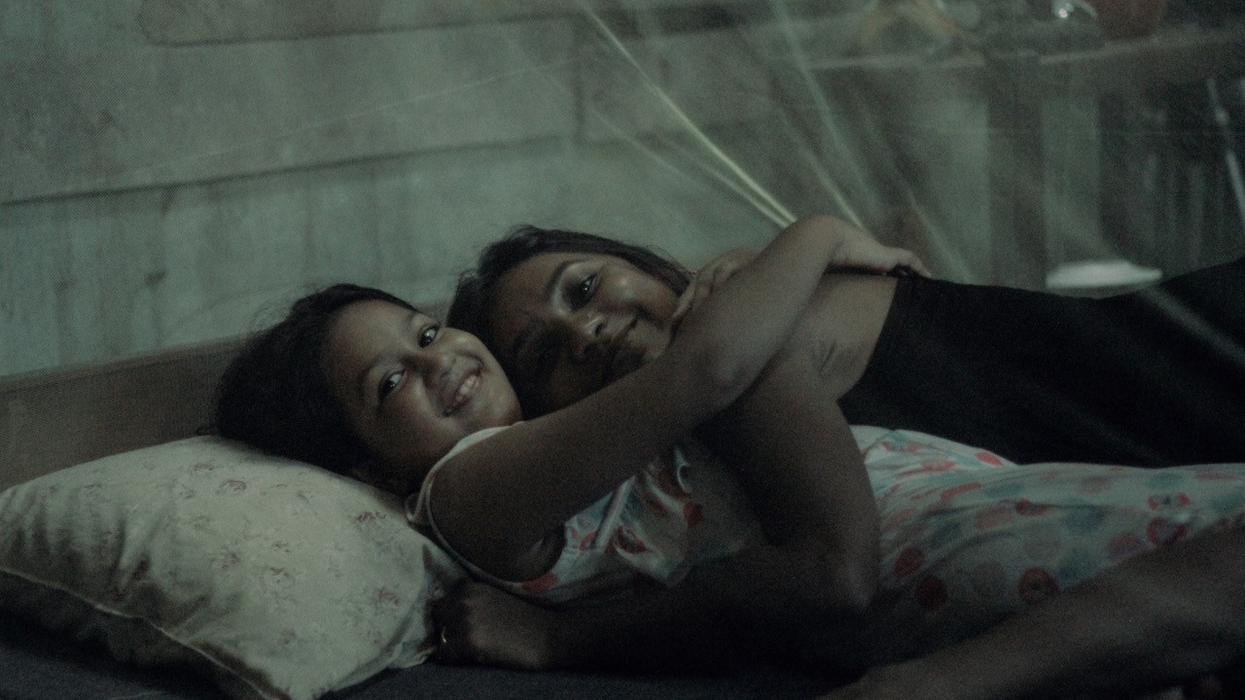Stunning Bangladeshi short film Moshari has received awards and acclaim at major festivals around the world.
The unique story of two sisters seeking shelter from a mysterious threat has qualified for the Oscars and will have its UK premiere at the London Film Festival this month.
Talented writer-director Nuhash Humayun has masterminded the path-breaking movie and gained a lot of attention for his artistry and injecting interesting messages into a chilling horror film. Having already got support for his upcoming film Moving Bangladesh from high profile organisations like the Sundance Institute, he is now looking forward to building on the success of Moshari.
Humayun spoke to Eastern Eye about the short film that so many people have been speaking positively about and creative inspirations.

What connected you to filmmaking?
I was 13 years old when my mom bought a family digital camera, and I kept using it to make funny videos. I was a bit of a weirdo at school, and didn’t have a lot of friends, so making shorts was my way of connecting with people. It all started from there.
What inspired your acclaimed film Moshari?
We always see the end of the world in movies – whether it is alien invasions or monster apocalypses – in New York or London. But what’s happening in Dhaka, Bangladesh? What’s the story of the survivors there?
Tell us a little about the unique movie?
Moshari is set in the near future where two sisters must survive a strange new world. Moshari means mosquito net in Bengali, and the only way these sisters can survive is inside a moshari. But the real question is, can they survive each other?
There is everything from climate change to family relations in the film. What is the key message you wanted to convey?
What I love, from our long festival run, is that every viewer has their own takeaway from what the film means. At the end of the day, it’s about dealing with family and how trauma affects us in different ways.
How do you feel about it being part of this year’s BFI London Film Festival?
Moshari at BFI as our UK premiere is immensely exciting, It’s such a grand, prestigious festival and also so diverse. This year’s line-up is incredible and it’s an honour to be amid such great films.
How much did it mean when the movie qualified for the Oscars?
We are the first Oscar qualifying film in Bangladesh’s history – something I could have never imagined. That too, multi-Oscar qualifying. It’s not just my team that’s excited, I feel all of Bangladesh is rallying behind me.
According to you, what makes for a great film, whether short or a feature?
Heart – I believe that makes for a great movie. A film should ultimately have a little piece of the filmmaker’s soul in it.
What inspires you?
I am inspired more by real life than films that already exist. There’s a rich world around us to draw from.
What can we expect next from you?
Moshari has been slated to become a studio feature film, which is very exciting.
whatson.bfi.org.uk




